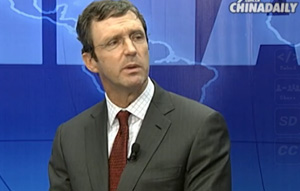And now, there can be two
Updated: 2013-11-22 10:34
By Shan Juan (China Daily Europe)
|
|||||||||||
By relaxing the three-decade old family planning policy in the country and allowing two children for families in which one parent, rather than both, is an only child, China has taken an important step to address its long-term demographic challenges, experts say.
Family planning has always been a controversial issue in China, and with a population of 1.4 billion people, been a major challenge for policymakers as they try to balance the economic resources. Policymakers had defended the policy by saying that the policy has helped prevent more than 400 million births since 1980.
In 1979, Deng Xiaoping was the first Chinese leader who suggested that family planning was essential for long-term progress in China. In 1980, the Party came out with a new regulation that made it mandatory for couples to practice family planning, and placed a de facto limit of one child for each family.
In 1984, the policy was tweaked a little by allowing a second child for some families in rural areas and for couples who both are an only child, and in some other specified circumstances. By 2001, the law saw further changes with local governments being permitted to impose fines on couples having more than one child.
While the latest reforms may allow more couples to have more children, Wang Pei'an, the vice-minister of the National Population and Family Planning Commission, says eager parents should wait till the necessary regulations are put in place.
Despite the relaxation of regulations, China will still adhere to family planning as a basic long-term policy, which will be fine-tuned gradually to maintain "a balanced development of the population in China over the long run", experts say.
The family-planning reforms are part of the deepening reforms suggested during the Third Plenary Session of the 18th CPC Central Committee from Nov 9 to 12.
Currently, couples in which both parents are only children can have two.
The landmark initiative was a milestone decision that reflected consultation and public opinion, and would promote a harmonious and stable society into the 21st century, said a statement issued by the National Health and Family Planning Commission on Nov 15.
It was also necessary in order to address demographic challenges, such as a rapidly aging population and a shrinking labor force, it said.
Lu Jiehua, a demographics professor at Peking University, says the relaxation of the one-child policy is a positive signal for further adjustments, but he feels that the impact would be limited. According to Lu, the change would affect urban areas more, given that one-child families are concentrated in the cities.
"It'll be a major step for the country to finally achieve a two-children family model," he says.
The 6th National Population Census in 2011 indicated that 37.5 percent of the Chinese population was restricted to just one child, according to policy.
Those eligible to have two children accounted for only 5.8 percent of the population. The percentages are of total population, including people not of childbearing age.
Mao Qun'an, a spokesman for the commission, says family planning is part of the comprehensive policy, and official estimates have ruled out the possibility of a population surge as a result of the revisions.
Mao expects China to maintain relatively low population growth over time. He credits China's successful family planning policy with containing a potential population explosion. The country's birth rate dwindled from 33.4 per thousand in 1970 to 12.1 per thousand in 2012.
Without the policy, Mao estimated, China would have had to support a population of 1.7 to 1.8 billion.
shanjuan@chinadaily.com.cn
(China Daily European Weekly 11/22/2013 page5)
Today's Top News
Premier Li heads west on opening-up tour
Deal reached in Iranian nuke talks
Roar of the East being heard
New air zone in line with practice
UN talks agree on major principles for climate pact
China maps out air defense ID zone
Nokia has 'phab' plan for Chinese mobile market
Newtown investigation report to be released
Hot Topics
Lunar probe , China growth forecasts, Emission rules get tougher, China seen through 'colored lens', International board,
Editor's Picks

|

|

|

|

|

|





